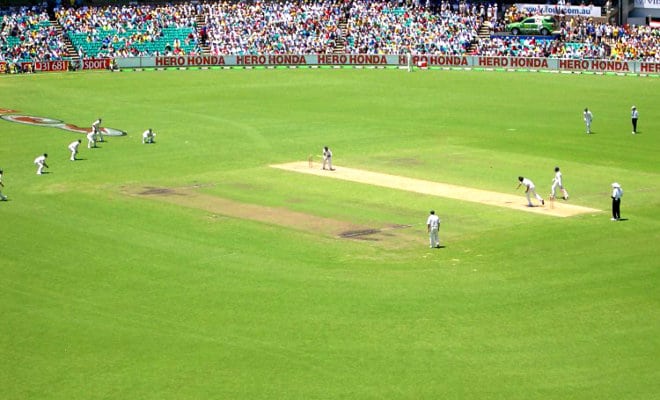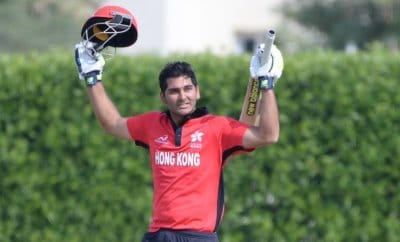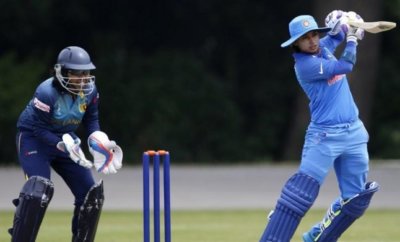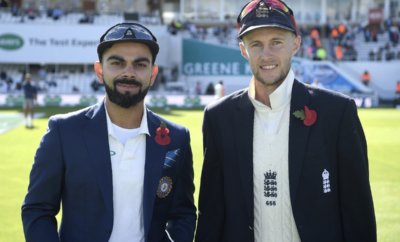Life
Three International Cricket Matches Involving India Were Fixed, Claims Sting Operation

Representational Image
Photo: Wikimedia Commons
A sting operation carried out by Al Jazeera claims that spot-fixes were carried out in three international Test matches involving India.
The International Cricket Council (ICC) has launched an investigation after a sting operation conducted by Al Jazeera’s investigative unit claimed that at least three Test matches played by India against England, Australia, and Sri Lanka were fixed.
“The ICC is aware of an investigation into corruption in cricket by a news organization and as you would expect, we will take the contents of the program and any allegations it may make very seriously,” the cricket body said in a statement, adding that a full investigation led by the ICC Anti-Corruption Unit, working with full cooperation from all member countries identified in the program, is now underway to examine each claim made.
Cricket’s Match-Fixers, an investigative documentary made by Doha-based Al Jazeera, claims to have exposed a Mumbai-based match fixer from a crime syndicate. The match fixer has claimed in the documentary that he paid bribes to international cricketers, so they under-perform in Test matches. The documentary talks about pitch-fixing that was done during three Test matches played by India — against Sri Lanka (Galle, July 2017), Australia (Ranchi, March 2017) and England (Chennai, December 2016), the Indian Express reported. While Indian won the matches against Sri Lanka and England, the Test against Australia resulted in a draw.
“Our undercover investigation reveals that ‘spot-fixes’ were allegedly carried out in matches between India and England at Chennai in December 2016 and India and Australia at Ranchi in March last year,” Al Jazeera said.
The documentary was aired on the Al Jazeera TV channel on May 27 and will be telecast until June 2.
Aneel Munawar, the Mumbai-based match-fixer showed in the film, told an undercover reporter from Al Jazeera that vast sums of money could be made by placing bets based on his information. “I’m telling you, each script I give you will happen, happen and happen,” he was quoted as saying by the news organization. “Sixty to 70 percent of matches we can set … fix,” he said, adding that he has been a part of match-fixing for six to seven years. The documentary was made following an 18-month investigation carried out by the media house.
According to Munawar, his company paid close to a million dollars for bribing players in the world’s leading Test teams. These payments are often made by a middleman or cricket official. “We do not decide the price of the player. We just give a global amount to the man, whoever he is,” he said. Munawar added that these players then keep some of the money and then decide how much they are going to distribute to others.
Claiming that his company bribed cricketers in every national squad, Munawar said that it mostly fixed international matches, which included Test matches.
Al Jazeera has, however, not named any cricketers in the documentary.
The documentary drew prompt responses from the cricket bodies of each country.
The Board of Control for Cricket in India (BCCI) issued a statement saying it has strict policies against such malpractices. “The BCCI has a zero-tolerance approach to any activity or act that brings the game of cricket to disrepute or mars the integrity of the game. The BCCI anti-corruption unit is working closely with the ICC anti-corruption on the alleged claims by a television channel,” the Indian cricket board said in the statement.
The BCCI also said that it will take action against former Mumbai player Robin Morris only if he is found guilty in an ongoing ICC probe. Morris is seen saying in the video that they have connections to influence groundsmen to fix pitches, and that he bribed the groundsman at Sri Lanka’s Galle Stadium to doctor the pitch so that match-fixers would benefit from betting.
The English Cricket Board (ECB) CEO Tom Harrison said in a statement on May 27 that ECB has not seen anything in the video that would make them doubt any of their players.
“The limited information we have been given has been discussed with all the England players. They emphatically deny the allegations, have stated categorically that the claims are false, and they have our full support. Neither ECB nor the International Cricket Council is aware of any credible evidence connecting any England players to any form of corruption,” Harrison said in the statement.
The documentary has not gone down well with Cricket Australia either. Its chief executive James Sutherland said there is no credible proof that links Australian players to corruption, the Guardian reported.
“Although not having been provided an opportunity to view the documentary or any raw footage, our long-standing position on these matters is that credible claims will be treated very seriously and fully investigated,” Sutherland said, according to the report.




You must be logged in to post a comment Login